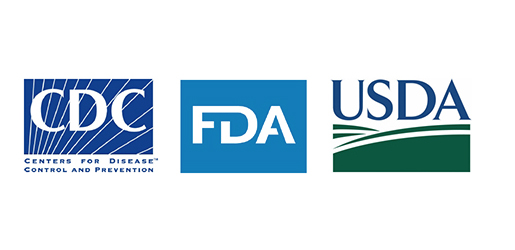IFSAC to Continue Focus on Finding Sources of Foodborne Illnesses

The Interagency Food Safety Analytics Collaboration (IFSAC) has published its 2022–2023 Interim Strategic Plan, placing continued emphasis on foodborne illness source attribution for Salmonella, E. coli O157:H7, Listeria monocytogenes and Campylobacter. Over the next year, IFSAC will address several short-term goals surrounding improvement of methods to evaluate and identify foodborne illness source attribution through the use of outbreak and non-outbreak-associated disease data, and continued collaboration with external partners in an effort to boost data access and capabilities. The group will be targeting several efforts in the coming year, including:
- Analysis of trends related to foodborne disease outbreak-associated illnesses over the past two decades, with a subsequent peer-reviewed journal article that reveals results.
- Development and improvement of machine-learning methods used to predict food sources of illnesses that have an unknown source. WGS will be used to compare Salmonella isolates of known and unknown sources.
- Collaboration with FoodNet when assessing key food sources for sporadic Salmonella Enteritidis and Campylobacter illnesses. The group will develop case-control studies using specific FoodNet data.
Formed in 2011, IFSAC is a partnership between FDA, FSIS and the CDC that seeks to strengthen federal interagency efforts and maximize use of food safety data collection, analysis and use. During 2022–2023, IFSAC will publish its yearly reports on foodborne illness source attribution for the previously mentioned priority pathogens.